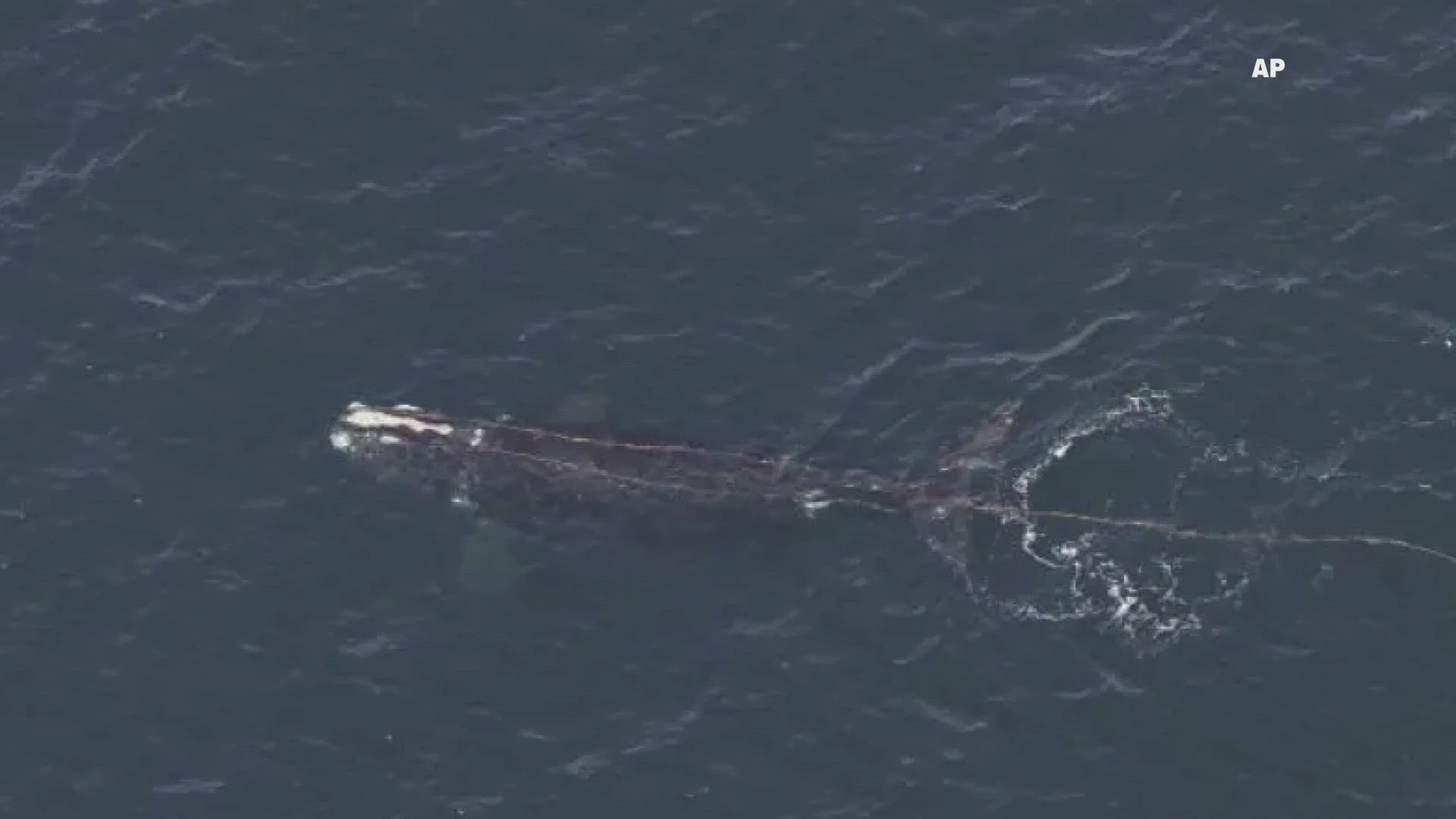PORTLAND, Maine — A North Atlantic right whale has been spotted entangled in rope off New England, worsening an already devastating year for the vanishing animals, federal authorities said.
The right whales number less than 360 and are vulnerable to entanglement in fishing gear and collisions with ships. The entangled whale was seen Tuesday about 50 miles south of Rhode Island's Block Island, the National Oceanic and Atmospheric Administration said.
The whale has rope coming out of both sides of its mouth and has been far from shore, making it difficult for rescuers to help, NOAA said in a statement.
“Given the long distance from shore, experts were unable to safely travel to the last known location of the whale during daylight to attempt a rescue,” the statement said. “NOAA Fisheries and our partners will monitor this whale and attempt to respond to the entanglement, if possible, as weather and safety conditions allow.”
Several right whales have died this year off Georgia and Massachusetts, and environmental groups fear the species could be headed for extinction. The animal's population fell about 25% from 2010 to 2020.
A whale found dead off Martha's Vineyard, Massachusetts, in January showed evidence of injury from entanglement in fishing gear. Environmental groups have called for stricter rules to protect the whales from entanglement in gear. However, a federal budget package passed in late 2022 included a six-year pause on new federal whale regulations.
“This is another example that entanglements are happening in U.S. waters,” said Gib Brogan, campaign director with environmental group Oceana. “We need stronger protection from entanglements in U.S. waters.”
The whales were once numerous off the East Coast, but they were decimated during the commercial whaling era and have been slow to recover. They have been federally protected for decades.
They migrate every year from calving grounds off Florida and Georgia to feeding grounds off New England and Canada. The journey has become perilous in recent years because their food sources appear to be moving as waters warm. That change causes the whales to stray from protected areas of ocean and become vulnerable to entanglements and collisions, scientists have said.

